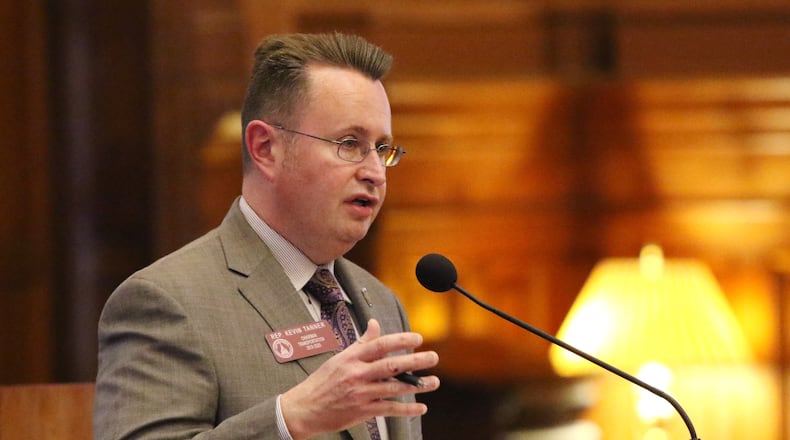For weeks state Rep. Kevin Tanner tried to get state senators to talk to him about his transit bill.
There were objections to the legislation. But the Dawsonville Republican said he was willing to compromise to advance transit across rural Georgia. All he needed, he said, was to get the conversation going.
The Senate repeatedly rebuffed him. But Tanner finally got his conversation Tuesday, with just a few hours left in the legislative session.
It didn't go anywhere, and a bill that sought to expand transit across the state died without a vote in the Senate.
Tanner's House Bill 511 remains alive for next year. But Tuesday's failure was the second setback for transit expansion in Georgia in recent weeks, following the failure of the Gwinnett County MARTA referendum. After gaining steam for years, transit expansion in Georgia has suddenly hit a rough patch.
Tanner was undeterred.
“The legislation we worked on for two years around transit is extremely important for rural Georgia and all of Georgia,” he said early Wednesday morning, a few minutes after the House had adjourned for the year.
Last year lawmakers approved legislation that could pave the way for transit expansion in 13 metro Atlanta counties. HB 511 seeks to take transit expansion statewide.
It would allow counties to raise sales taxes for transit expansion. It would create pilot programs to help unemployed residents get transportation to jobs. And it would combine state transit functions — currently spread across six agencies — into a single new agency.
The bill passed the House by an overwhelming margin. But it drew stiff opposition from the Georgia Department of Transportation, which objected to consolidation of agencies. GDOT said consolidation could have unintended consequences, and it wanted to keep its transit functions.
"GDOT is fully committed to being fully efficient and effective in all transportation programs," the agency's commissioner, Russell McMurry, recently told the Senate Transportation Committee.
The legislation went nowhere in the Senate. But last week, Tanner and House leaders sought to revive the transit bill, combining it with two other high-profile measures: a proposed tax break on jet fuel that largely would have benefited Delta Air Lines and a proposed state takeover of Hartsfield-Jackson International Airport. The idea was to spark negotiations with the Senate.
But the Senate didn't take the bait. So on Tuesday — the last day of the legislative session — the House tried again by using Senate Bill 200 as a vehicle for the transit and jet-fuel measures. That brought the Senate to the negotiating table.
But the meeting of three senators and three representatives didn’t happen until nearly 8:30 p.m. And they couldn’t agree on any of the issues — the jet-fuel tax break, the airport takeover or the transit expansion.
One of the negotiators, state Sen. Steve Gooch, R-Dahlonega, said the transit bill was a complicated piece of legislation, and Tanner introduced it too late in the session for senators to adequately digest it.
“We don’t think it’s been properly vetted,” he said.
And though Tanner had tweaked the bill to address some of GDOT’s concerns, the agency remained opposed to the consolidation of state transit functions, Gooch said.
Tanner said there would have been enough time to work out a deal had the Senate been willing to start negotiations Friday.
“That would have given us all weekend and all day yesterday and all day today,” he said. “I feel pretty confident we could have come up with some resolution. But it’s been very difficult to have serious policy conversations around some of these key issues this session and specifically the last several days.”
Now Tanner will have until next year to have those conversations — if he can find a willing partner.
“I have been very open to change, very open to ideas and compromise,” he said. “But by the time we got to the point where we had conversations, it was just too late.”
Stay on top of what’s happening in Georgia government and politics at www.ajc.com/politics.
About the Author
Keep Reading
The Latest
Featured




